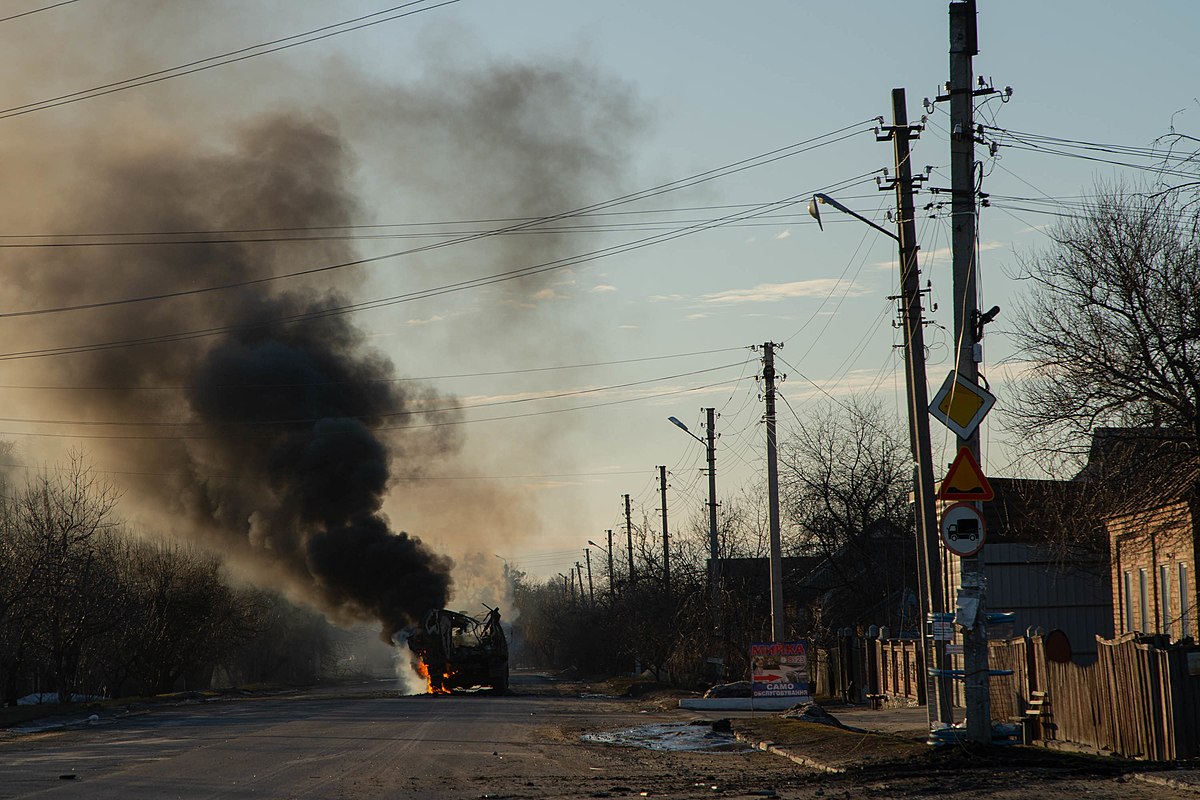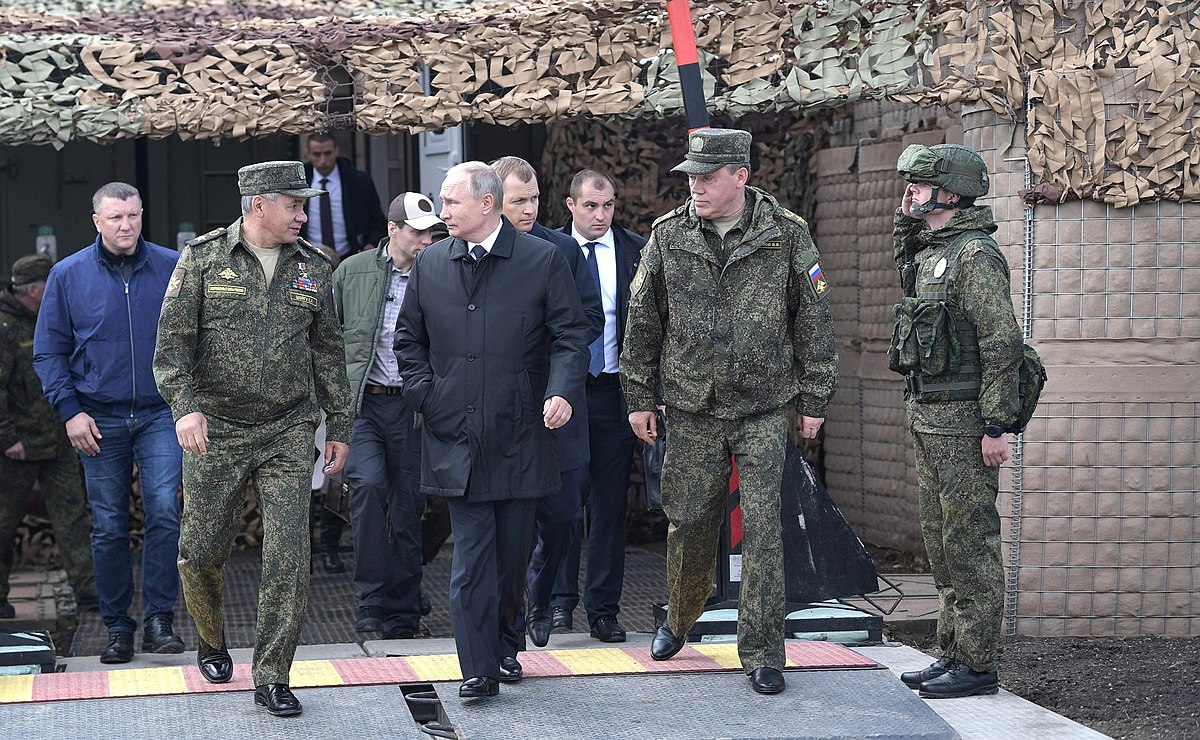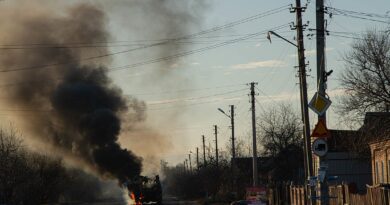Ukraine: Moscow’s second Afghanistan?

In this conflict, Poland sided with Ukraine – an obvious decision. Any undermining of the principle of sovereignty and violation of international rules must be unilaterally condemned.
Paweł Lisicki
Why did Russia attack Ukraine? It is not an easy question to answer at all. A simple profit and loss account shows that this is an extremely risky move. It is more like playing craps rather than making a chess move. It is no wonder then that political commentators are often talking about Putin’s madness in this context. Indeed, this hypothesis – Putin invaded because he simply felt like it, and because he wanted to, and he wanted to, because he is crazy – would explain everything. Psychopaths cannot be fully understood. They operate in their own ways, as they want to. However, there are several facts against the thesis pointing to the madness of the Russian leader.
First, the timing. Before Russia decided to attack, it had secured its home front. The agreements with China signed months ago mean that any sanctions imposed on Russian raw materials – gas, coal or oil – may not be so severe for Moscow. Russia’s heed of Beijing’s view was evident when China asked to postpone the invasion, which happened. It happened exactly when the Beijing Olympics ended. Another important fact: a spokeswoman for the Chinese Foreign Ministry stated that, “Russia is an independent country, and it can make its own decisions based on its own interests”. What’s more: Beijing is not calling Russia’s operations in Ukraine an “invasion”. On the contrary, the Chinese media is echoing the language of Moscow’s propaganda. According to the Chinese, if anyone is fueling tensions, it is the United States that is opposed to Russia’s “special operation” in Ukraine.
Second, Putin had previously secured enormous financial resources. He also skillfully made EU member states dependent on Russia. Berlin’s absurd ecological policy meant that the sanctions announced by Western countries would hit not only Russia, but also the EU itself. How long will Germany or Italy, for example, survive without Russian gas? Hard to say. In Putin’s eyes, successive EU leaders did not seem to command respect. The dictator only takes into account those whom he fears. Neither Emanuel Macron, Olaf Scholz, nor others likely evoke such feelings in the Russian “Tsar”. Unfortunately, some statements by EU politicians, such as Ursula von der Leyen (after all, former German Defense Minister!), who asked how Putin would explain the invasion to Russian citizens, are making a grotesque impression on the public.
Third, Putin must have seen the weakening of the most important player in the West, the United States. From the moment he took power in the White House, Joe Biden gave the impression of a shaky, unstable, naive president. At a crucial moment, when the fate of the sanctions for Nord Stream 2 was at stake, he gave Germany the green light. The evacuation from Afghanistan, during which American soldiers were leaving their bases in panic, abandoning their weapons arsenals, was a real catastrophe. Finally, the constant tinkering of ideologues with the army, of which the most bizarre element was the alleged proposal of branding US Army helicopters with the LGBT flag, appeared as if Washington was dismantling its own combat force.
Taking these circumstances into account, Putin’s decision to attack Ukraine does not seem as crazy as it may have appeared at first glance. In fact, everything depends on the outcome of the invasion. If Russia manages to take control of the most important objects quickly and break the resistance of the Ukrainians, Putin will be able to announce his success. Moscow has clearly demonstrated what it expects: it wants the acceptance of its earlier gains, namely Crimea, and the complete military neutralization of Ukraine. In the maximum version, Putin may try to install a government in Kiev that is subordinate to Russia.
However, it may turn out that Moscow has miscalculated its chances and that the blitzkrieg that was supposed to be the invasion of Ukraine will not be successful. History provides numerous examples of such outcomes. In such a scenario, instead of a quick and crushing blow, the Russians would get stuck in Ukraine, losing soldiers, finances, and their will. Ukraine would then become to Moscow what Afghanistan was to the Soviet Union.
At this point, it is difficult to determine which scenario is more likely. Some say that Putin already lost by instigating the attack, because he got into a situation with no way out. Others believe the opposite – he already won because he used the weakness of Ukraine and the decay of the West in an extremely cynical way. Much will depend not only on the will of the Ukrainians to resist, but also on the response of Western countries.
In this conflict, Poland sided with Ukraine – an obvious decision. Any undermining of the principle of sovereignty and violation of international rules must be unilaterally condemned.
In the situation we are in as a country, regardless of the various forms of support for Ukraine, the most important thing is, however, to strengthen the Polish army as soon as possible, and above all focus our efforts on its rearmament. The invasion of Ukraine radically changed the level of security in Europe and we must draw conclusions from this as soon as possible.



